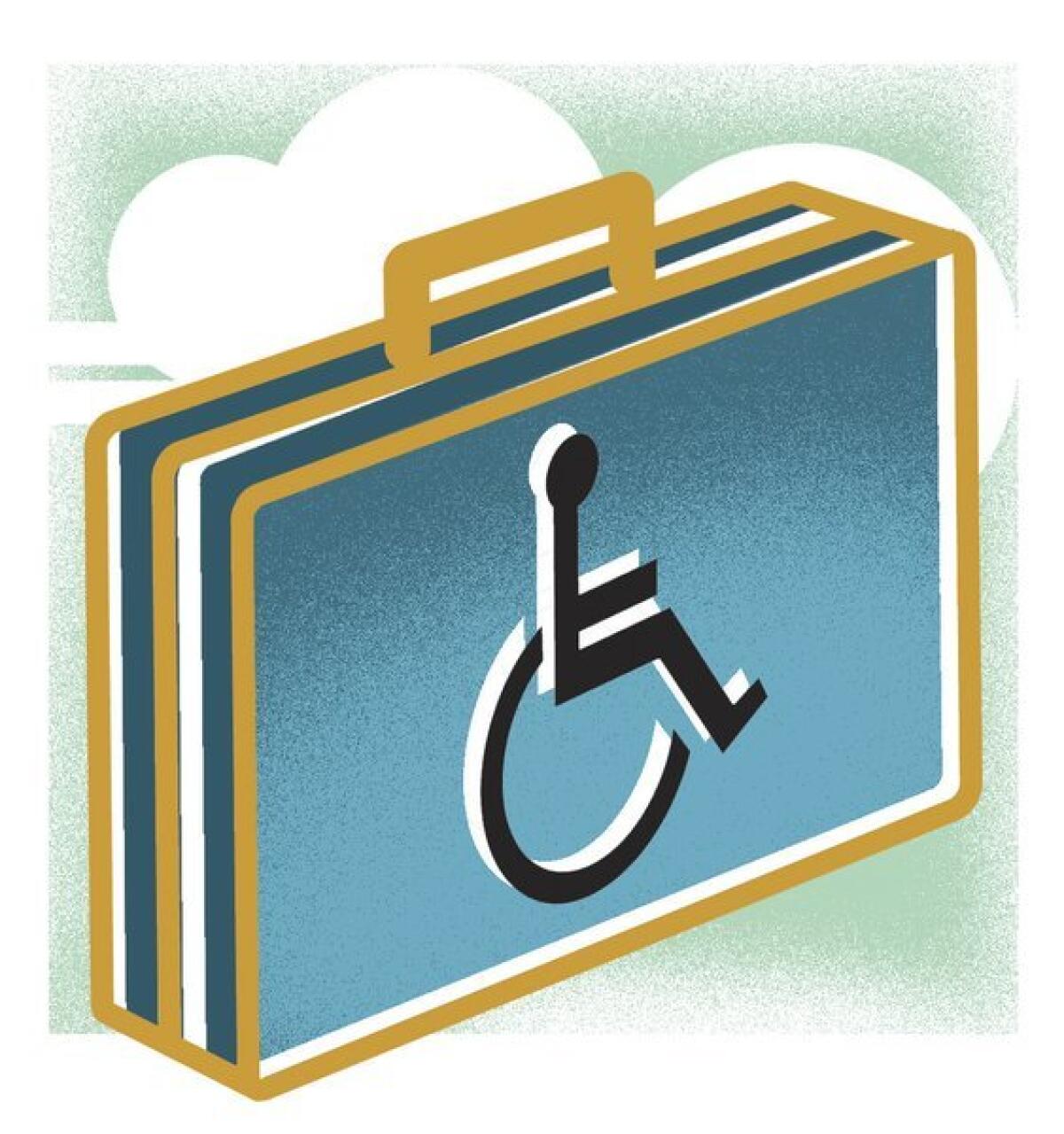On the Spot: The right way for hotel to suggest an accessible room

Question: As an employee of a hotel, I wonder what is the proper way to offer an accessible room to someone I think might need something other than a standard room. I don’t want to offend that person if he or she doesn’t want that kind of room. Is it rude to offer alternative accommodations when they have not been requested?
Russell Daly
Salt Lake City
Answer: It’s not rude, but it could be a bit risky.
When Daly asked this question, I wondered whether there were legal ramifications. But two lawyers I checked with didn’t think so.
“The purpose of the ADA [Americans With Disabilities Act] is to level the playing field,” said David Scher, principal attorney with the Employment Law Group, which has offices in Washington, San Francisco and Los Angeles. “The undergirding is compassion, equality and understanding. The fact that this person is thinking about this is a good sign. You’re not going to go wrong with the law by being sensitive to those issues....”
Brian Inamine, a partner at the L.A. law firm LeClairRyan, also doubted a sincere inquiry would result in legal action, although he added, with a small laugh, “This is America. You can sue anyone for anything.”
Both had suggestions for Daly.
Scher suggested an approach that doesn’t point out a person’s frailty. “He could say, ‘We have a number of different types of rooms,’” Scher said. “It signals that there are options.” And it takes away any hint of judgment, he added.
Inamine thought this approach might work: “‘Are there any special requests you may have?’ That might trigger a permissible discussion.”
In fact, both suggested that this approach be used with every guest so that no one feels singled out.
Mary M. Mitchell, the author of nine etiquette books, including the recent “The Complete Idiot’s Guide to Modern Manners Fast-Track,” noted that a similarly neutral, “Is there anything we can do to make your stay more comfortable?” might do the trick.
She added one more important point: Watch your tone of voice. If you sound syrupy or cloying, that can come off as condescending, and that’s what you don’t want. She suggested rehearsing the line, a technique she uses.
“You say this [your scripted line] in exactly the same tone of voice as you say, ‘It’s raining outside.’” (When I pointed out to Mitchell, who is from Seattle, that Southern Californians are apt to get a little more riled up about rain than someone who lives in the Pacific Northwest, she laughed and suggested saying, “It’s sunny today.”)
The point is this: Choose a phrase, she said, that’s devoid of emotion. Practice saying it “so that it becomes very matter of fact and that indicates you’re accepting that individual in his or her wholeness.”
Uniformity of approach plus respect for the individual plus neutrality in tone can add up to an outcome that spares the person’s dignity and allows the hotelier to be helpful. And that’s a winning equation.
Have a travel dilemma? Write to travel@latimes.com. We regret we cannot answer every inquiry.
More to Read
Sign up for The Wild
We’ll help you find the best places to hike, bike and run, as well as the perfect silent spots for meditation and yoga.
You may occasionally receive promotional content from the Los Angeles Times.







